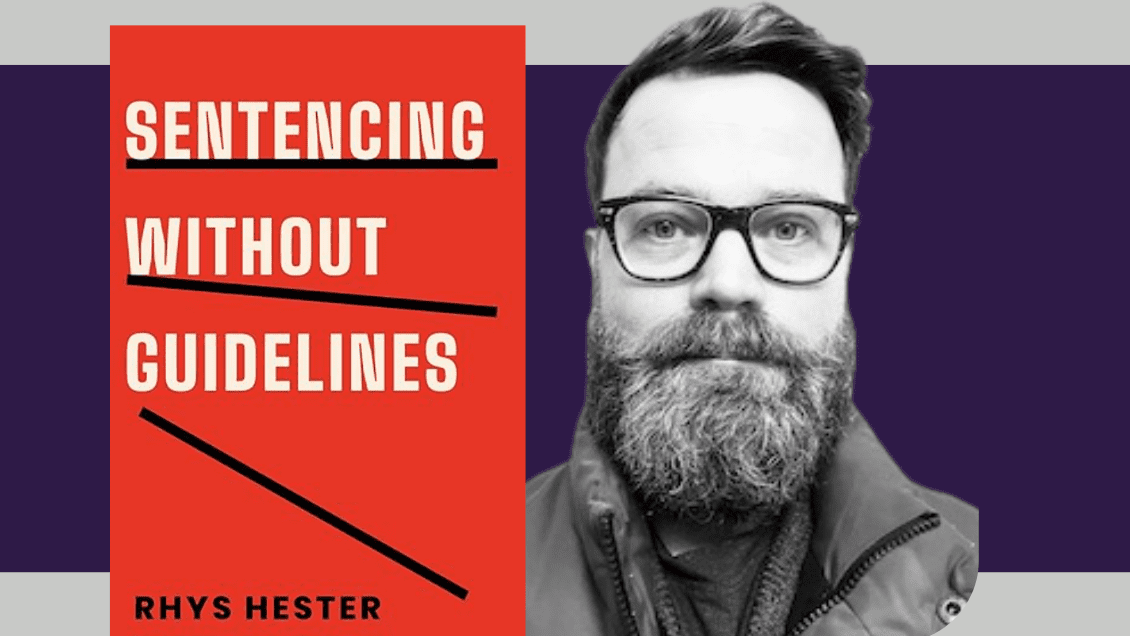A new book, Sentencing Without Guidelines – written by Rhys Hester, associate professor in the Clemson University Department of Sociology, Anthropology and Criminal Justice, and published by Temple University Press – examines sentencing policies, practices and outcomes in South Carolina.

According to Hester, the approach to crime and punishment in the United States varies drastically by state. State officials retain authority over most aspects of punishment policy – and while some states impose sentencing guidelines, most do not.
He explains, most states utilize parole, but others have abolished the practice. Some states aggressively prosecute drug activity while others have legalized the use of certain drugs. As a result, these inconsistent practices have made it difficult for researchers to examine the impacts of sentencing decisions across states.
“For close to two decades, judges and legislators in South Carolina strongly considered sentencing guidelines, going so far as to establish a statewide sentencing commission,” said Hester. “The commission is now defunct, but the data collected during that time is invaluable to our investigation into sentencing policy and practice.”

In the book, Hester investigates how South Carolina, a non-guideline state, successfully met some of the goals of the sentencing reform movement through the adoption of informal norms and the practice of traveling judges. He examines the role of prior convictions and demographics in sentencing and explores how legal reform mechanisms can influence punishment goals and policy.
Using a mixed-methods approach, he analyzed data collected by the sentencing commission and through interviews with the state’s trial judges to demonstrate the benefits and drawbacks South Carolina experienced. He said the results were surprising.
He found that even though South Carolina’s judges are not bound by formal guidelines, sentencing decisions throughout the state and across judges, are relatively uniform. Academic research on sentencing often finds significant variation across judges and geographic locations, giving rise to the concept of local legal culture – or the idea that local courts create their own sentencing norms that lead to different punishment outcomes for the same crimes within the same state. Hester said these local variations are even persistent in states that abide by sentencing guidelines, so his findings – less sentencing variation in South Carolina, a state without guidelines – was intriguing.
Additional findings on the impacts of judicial rotation and the role of plea judges – an informal title given to a small group of judges known for more lenient sentencing – emerged through Hester’s conversations with state judges.
“Sentencing Without Guidelines is a vital, policy-focused resource for state legislators, judges, researchers, teachers and graduate students alike,” said Katherine Weisensee, chair of the Clemson Department of Sociology, Anthropology and Criminal Justice. “Dr. Hester’s data-driven research provides an in depth look at sentencing outcomes in South Carolina and offers insight into an area of crime and punishment with little existing data, and jurisdictions across South Carolina and beyond stand to benefit from his work.”
Hester received a bachelor’s degree in social sciences from Charleston Southern University, a law degree from the University of South Carolina Law School and a doctorate in criminology and criminal justice from the University of South Carolina.
The Department of Sociology, Anthropology and Criminal Justice is a part of the College of Behavioral, Social and Health Sciences. Established in July 2016, CBSHS is a 21st-century, land-grant college that combines work in nine disciplines – communication; nursing; parks, recreation and tourism management; political science; psychology; public health sciences; sociology, anthropology and criminal justice – to further its mission of “building people and communities” in South Carolina and beyond.
Get in touch and we will connect you with the author or another expert.
Or email us at news@clemson.edu

